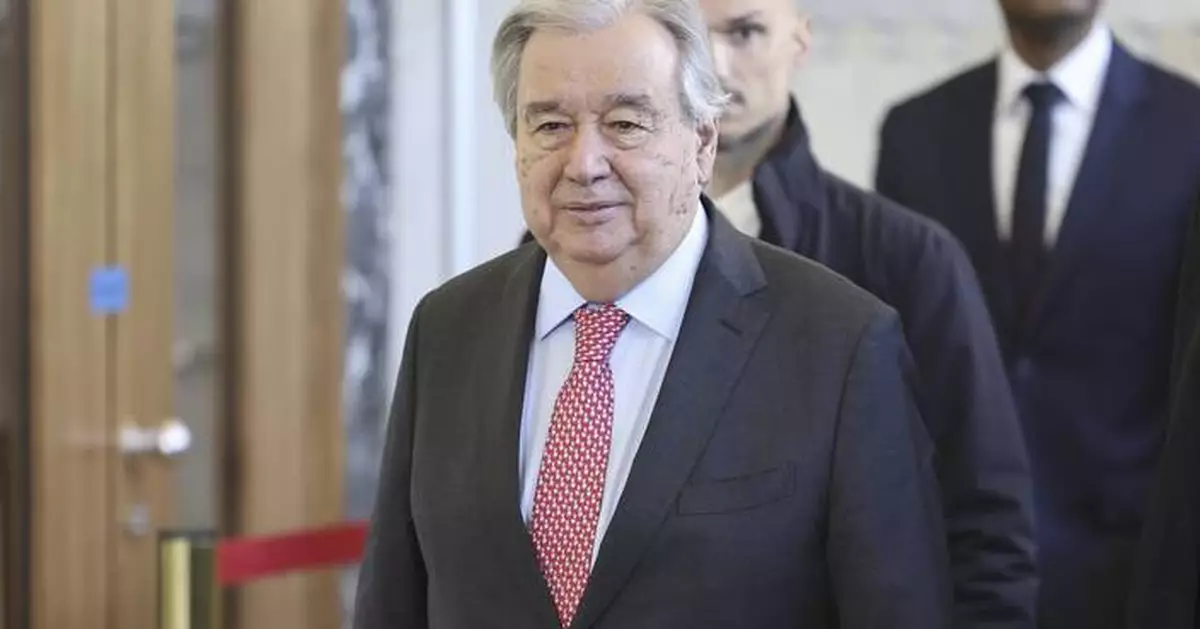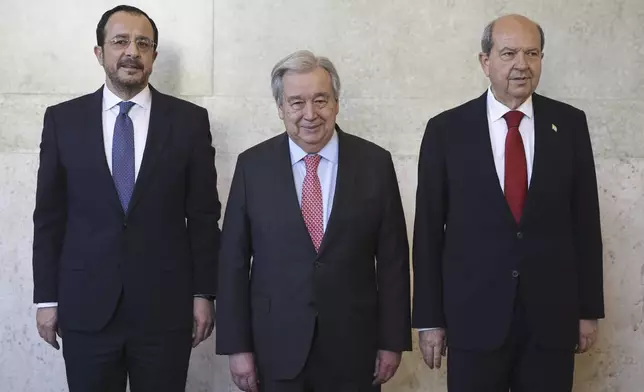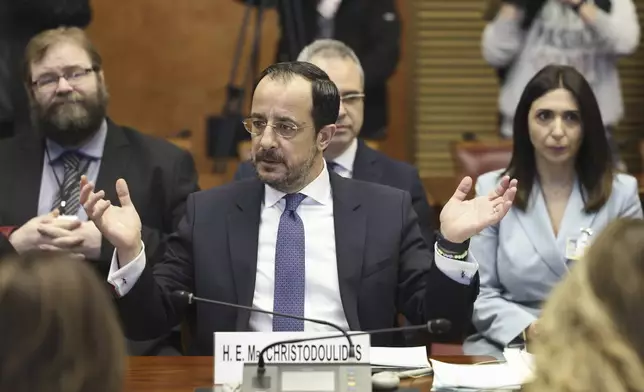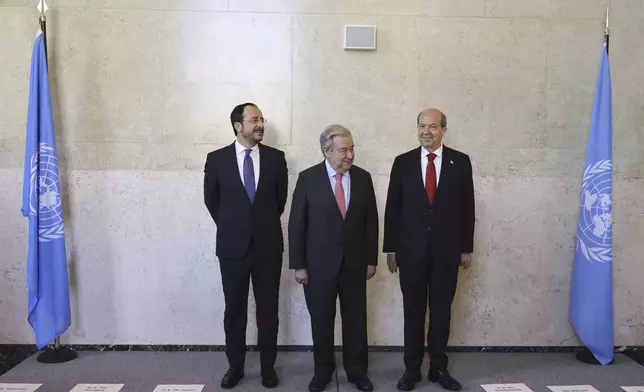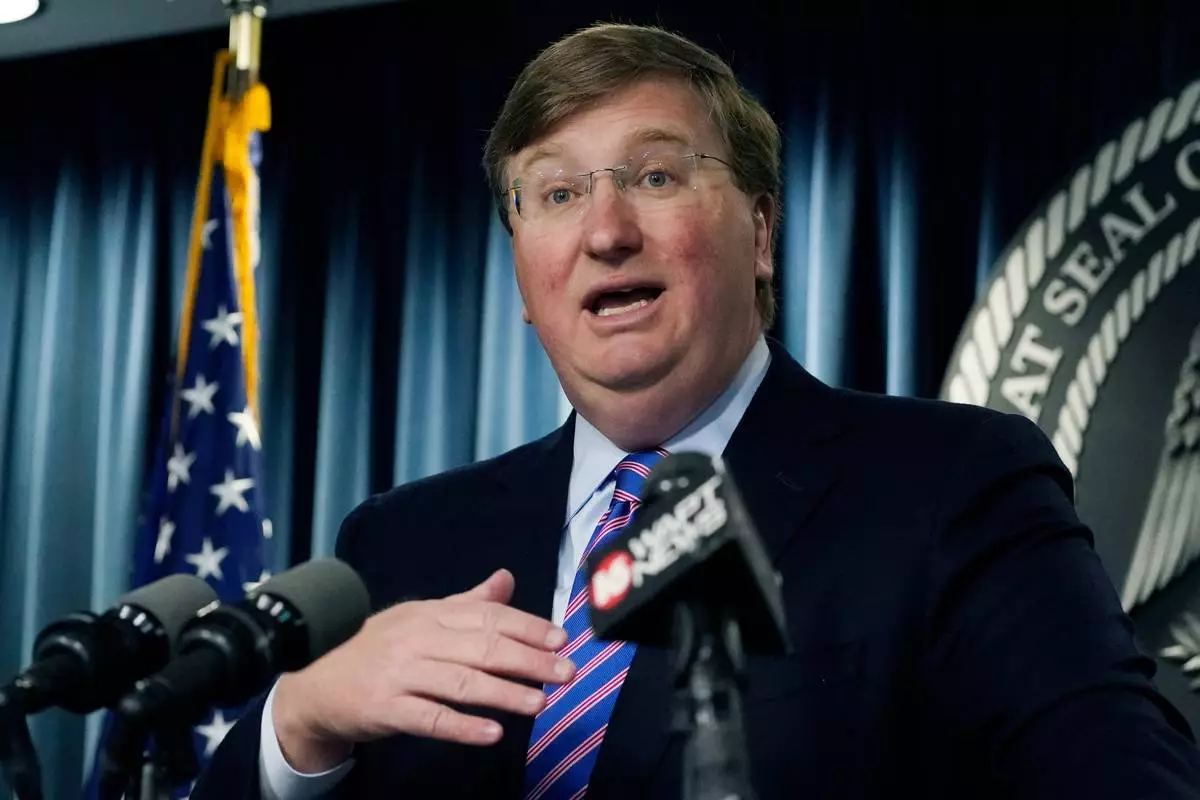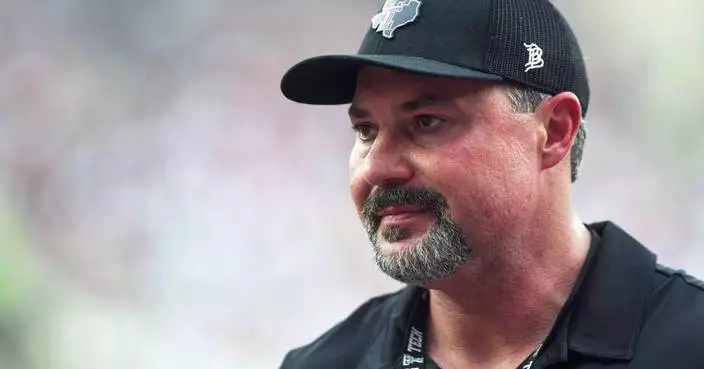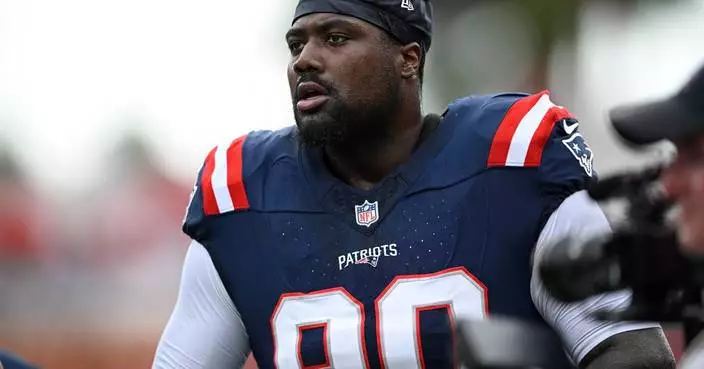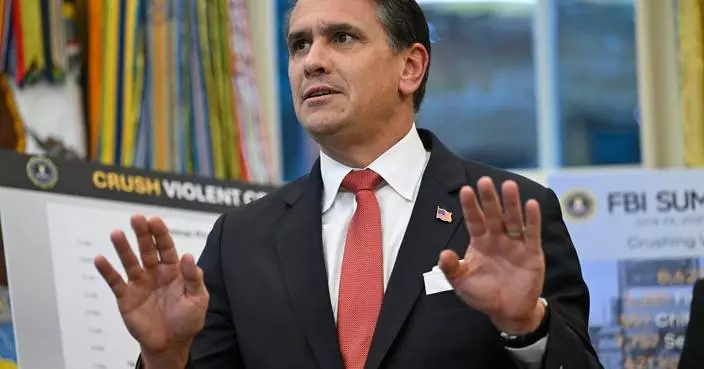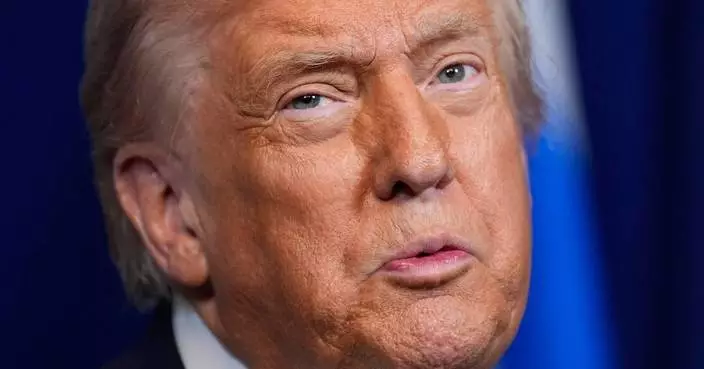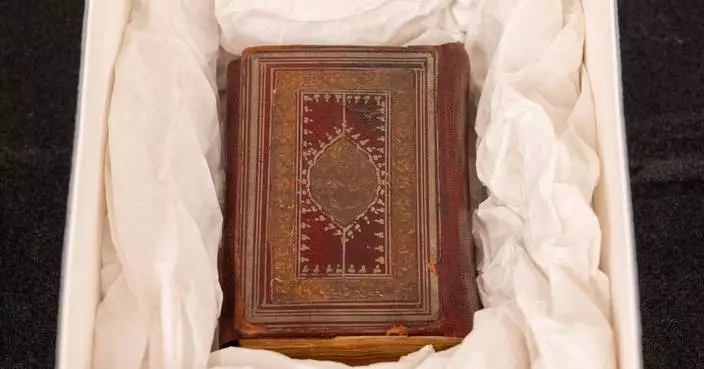GENEVA (AP) — U.N. Secretary-General Antonio Guterres said Tuesday he will appoint an envoy to help shepherd a divided Cyprus toward long-lasting peace, as he hailed a “constructive atmosphere” in talks with Greek Cypriot and Turkish Cypriot leaders.
The U.N. chief spoke after an informal meeting in Geneva with Greek Cypriot President Nikos Christodoulides and Turkish Cypriot leader Ersin Tatar that aimed to breathe new life into a peace process on hiatus for nearly eight years.
The Mediterranean island was divided when Turkey invaded the northern part in 1974 following a failed coup by supporters of a union with Greece. Only Turkey recognizes a Turkish Cypriot declaration of independence, and has more than 35,000 troops in the island’s northern third.
Although Cyprus joined the European Union in 2004, only the Greek Cypriot south, where the internationally recognized government is seated, enjoys full membership benefits.
“These discussions were held in a constructive atmosphere, with both sides showing clear commitment to making progress and continuing dialogue,” Guterres told reporters.
He said Christodoulides and Tatar agreed to trust-building initiatives on issues like energy, environment, opening four new crossing points along a U.N. controlled buffer zone, youth affairs and de-mining, and that he will appoint an envoy to "prepare the next steps” for a new meeting at the end of July to take stock of progress.
Turkish Foreign Minister Hakan Fidan and Greek Foreign Minister George Gerapetritis were on hand for the talks along with Foreign Office Minister Stephen Doughty of Britain, a former colonial ruler of Cyprus that maintains two military bases on the island.
Although the meeting fell short of the stated aim of reanimating a comatose formal peace process, Christodoulides praised it as a “first, significant, positive step" in that direction.
Getting the peace process back on track faces significant challenges as a wide chasm continues to separate both sides on the kind of peace deal each would like to see.
Tatar and Turkey insist a two-state deal is now the only way to resolve one of the world’s most intractable disputes since the "old" model — a federation made up of Greek and Turkish speaking zones — is no longer valid after decades of failure.
“For four years I have been promulgating that unless our sovereign equality and sovereign equal international status (to Greek Cypriots) is endorsed, we will not be seating to negotiate the Cyprus problem,” Tatar said after the conclusion of the meeting.
Greek Cypriots say any deal that entrenches the island’s partition is a non-starter as it contravenes long-held U.N. resolutions endorsing a federation.
They also reject a Turkish and Turkish Cypriot demand for a permanent Turkish troop presence and military intervention rights under any accord, as well as a giving the minority Turkish Cypriots veto power over all federal-level government decisions.
Associated Press writer Menelaos Hadjicostis contributed from Nicosia, Cyprus.
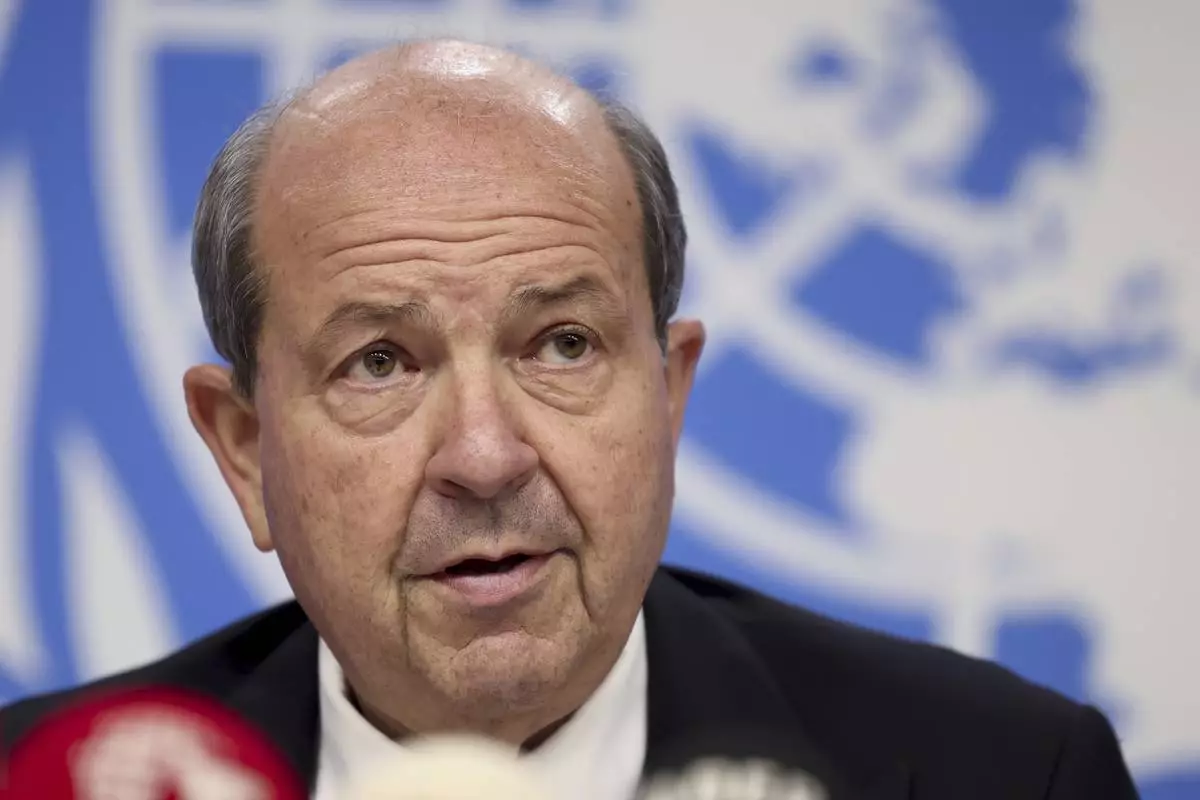
Turkish Cypriot leader Ersin Tatar attends a press conference on the day of a meeting to discuss future of stalled peace talks over the divided island of Cyprus at the United Nations in Geneva, Switzerland, Tuesday, March 18, 2025. (Pierre Albouy/Keystone via AP)
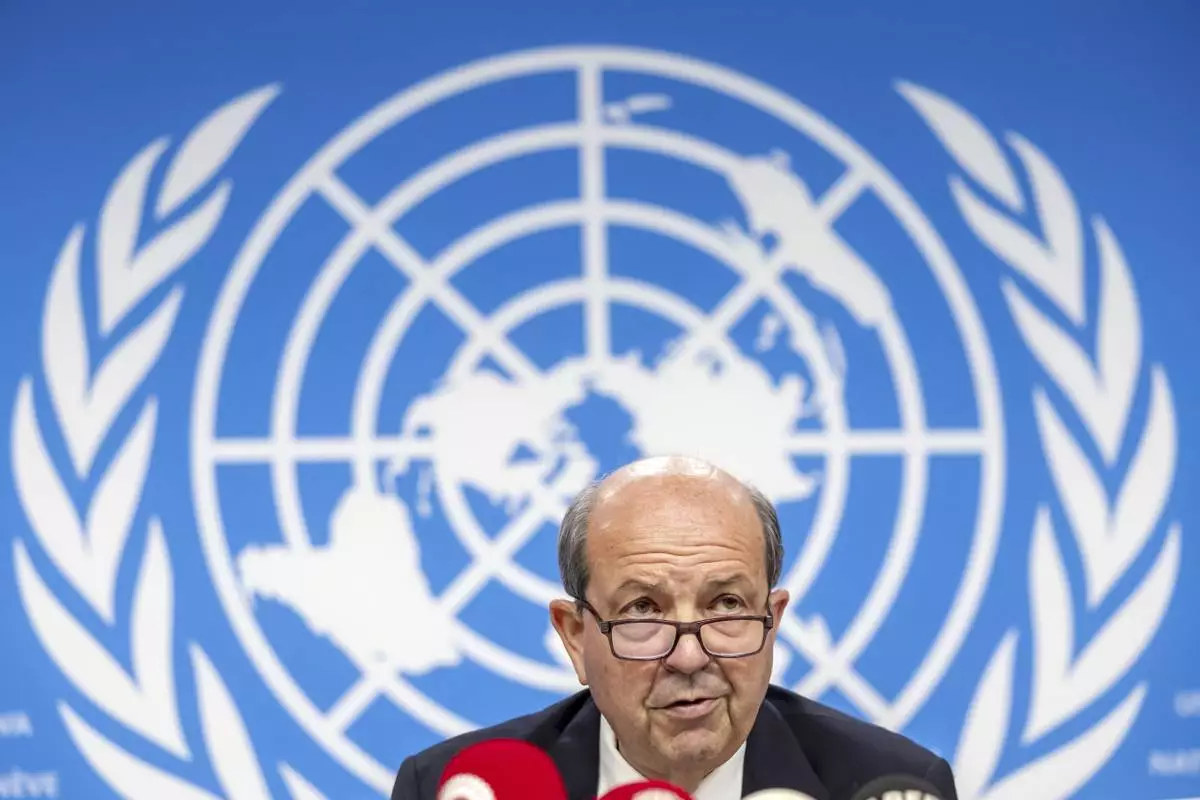
Turkish Cypriot leader Ersin Tatar attends a press conference on the day of a meeting to discuss future of stalled peace talks over the divided island of Cyprus at the United Nations in Geneva, Switzerland, Tuesday, March 18, 2025. (Salvatore Di Nolfi/Keystone via AP)
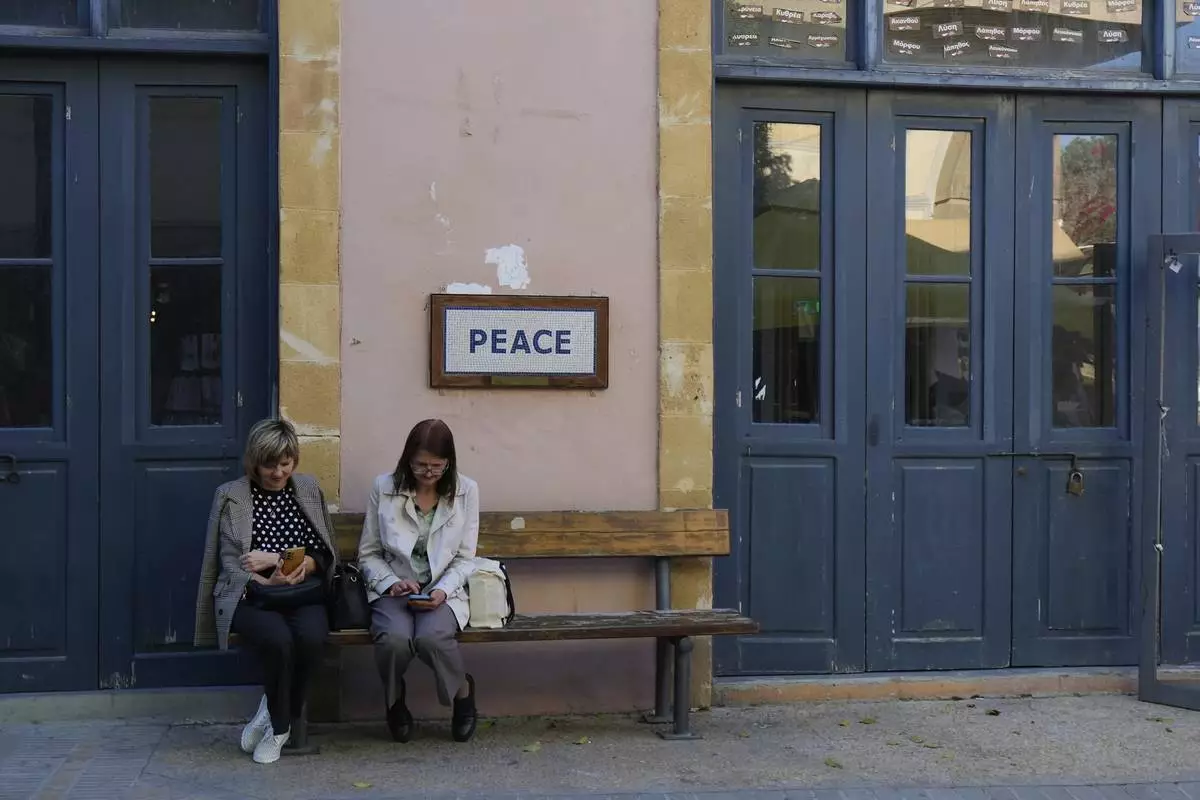
Women sit on a bench next to a checkpoint crossing point at Ledra street in divided capital Nicosia, Cyprus, Tuesday, March 18, 2025. (AP Photo/Petros Karadjias)
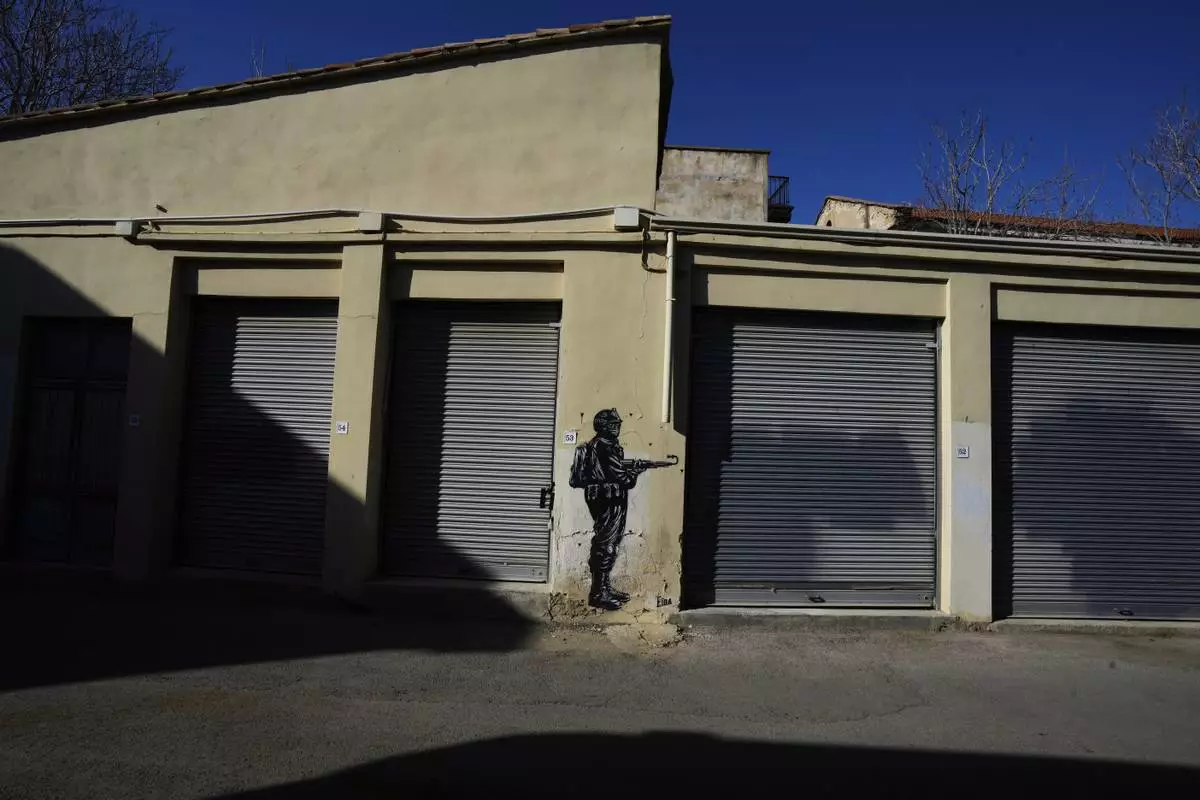
A painting showing a soldier is seen across the U.N buffer zone in divided capital Nicosia, Cyprus, Tuesday, March 18, 2025. (AP Photo/Petros Karadjias)
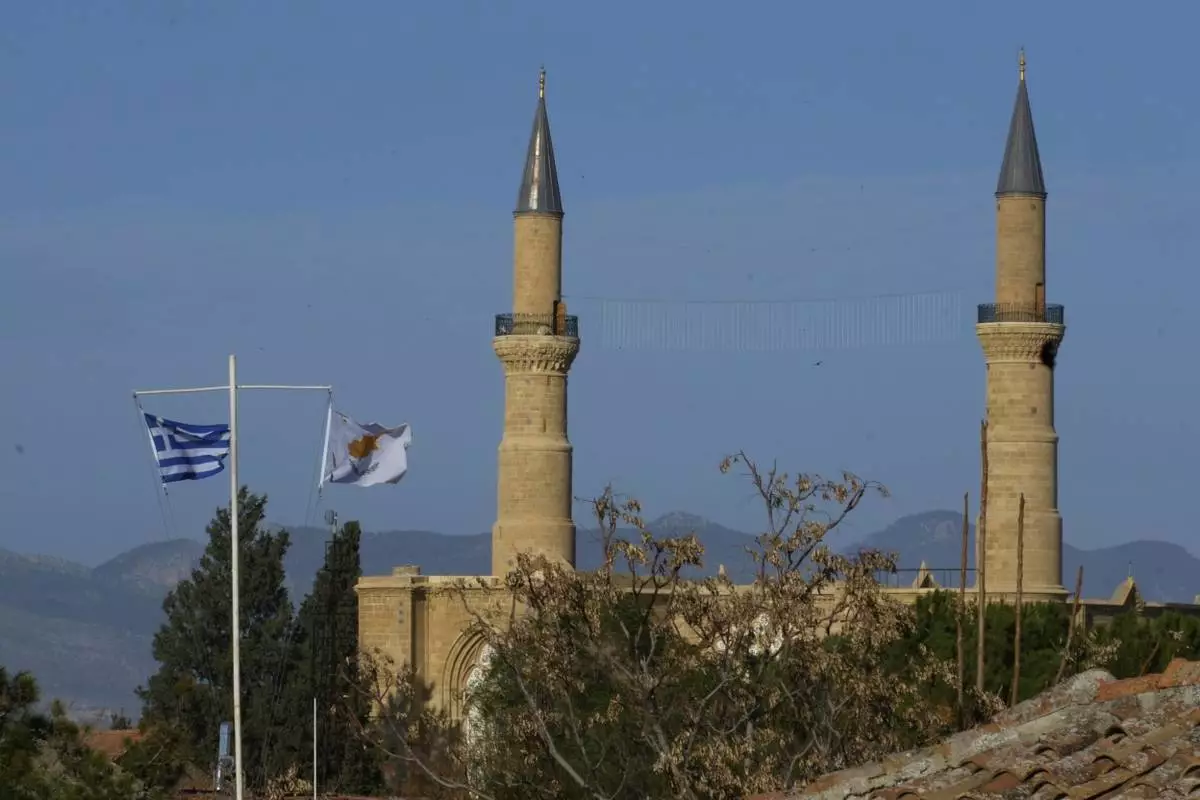
A Cyprus' and a Greek flags, are seen on the pols in the south, as in the background are seen the minarets of the Selimiye mosque, or Cathedral of St Sophia, or Agia Sofia, in the Turkish occupied area in the north, in divided capital Nicosia, Cyprus, Tuesday, March 18, 2025. (AP Photo/Petros Karadjias)

From left, Cyprus President Nikos Christodoulides, UN Secretary-General Antonio Guterres and Turkish Cypriot leader Ersin Tatar pose for a photo, ahead of a meeting to discuss the future of stalled peace talks over the divided island of Cyprus at the United Nations in Geneva, Switzerland, Tuesday, March 18, 2025. (Pierre Albouy/Keystone via AP)
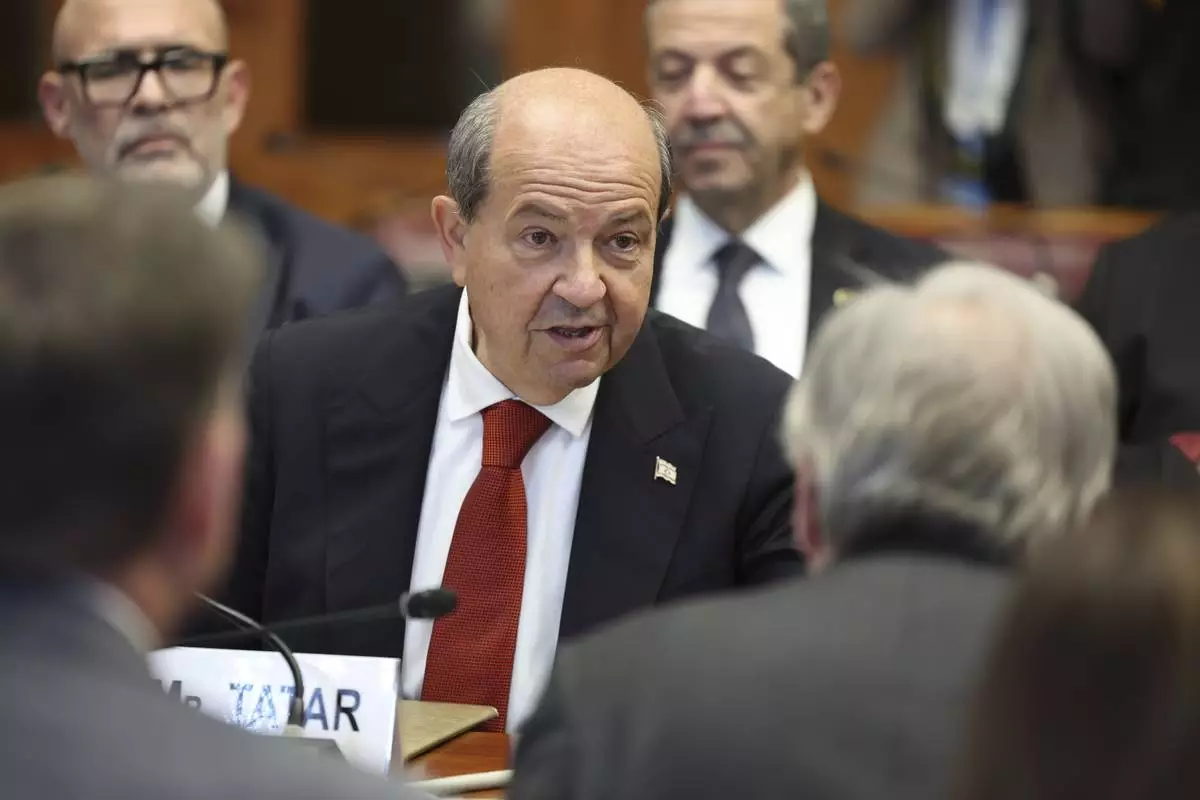
Turkish Cypriot leader Ersin Tatar attends a meeting to discuss the future of stalled peace talks over the divided island of Cyprus at the United Nations in Geneva, Switzerland, Tuesday, March 18, 2025. (Pierre Albouy/Keystone via AP)

Cyprus President Nikos Christodoulides attends a meeting to discuss the future of stalled peace talks over the divided island of Cyprus at the United Nations in Geneva, Switzerland, Tuesday, March 18, 2025. (Pierre Albouy/Keystone via AP)

From left, Cyprus President Nikos Christodoulides, UN Secretary-General Antonio Guterres and Turkish Cypriot leader Ersin Tatar pose for a photo, ahead of a meeting to discuss the future of stalled peace talks over the divided island of Cyprus at the United Nations in Geneva, Switzerland, Tuesday, March 18, 2025. (Pierre Albouy/Keystone via AP)
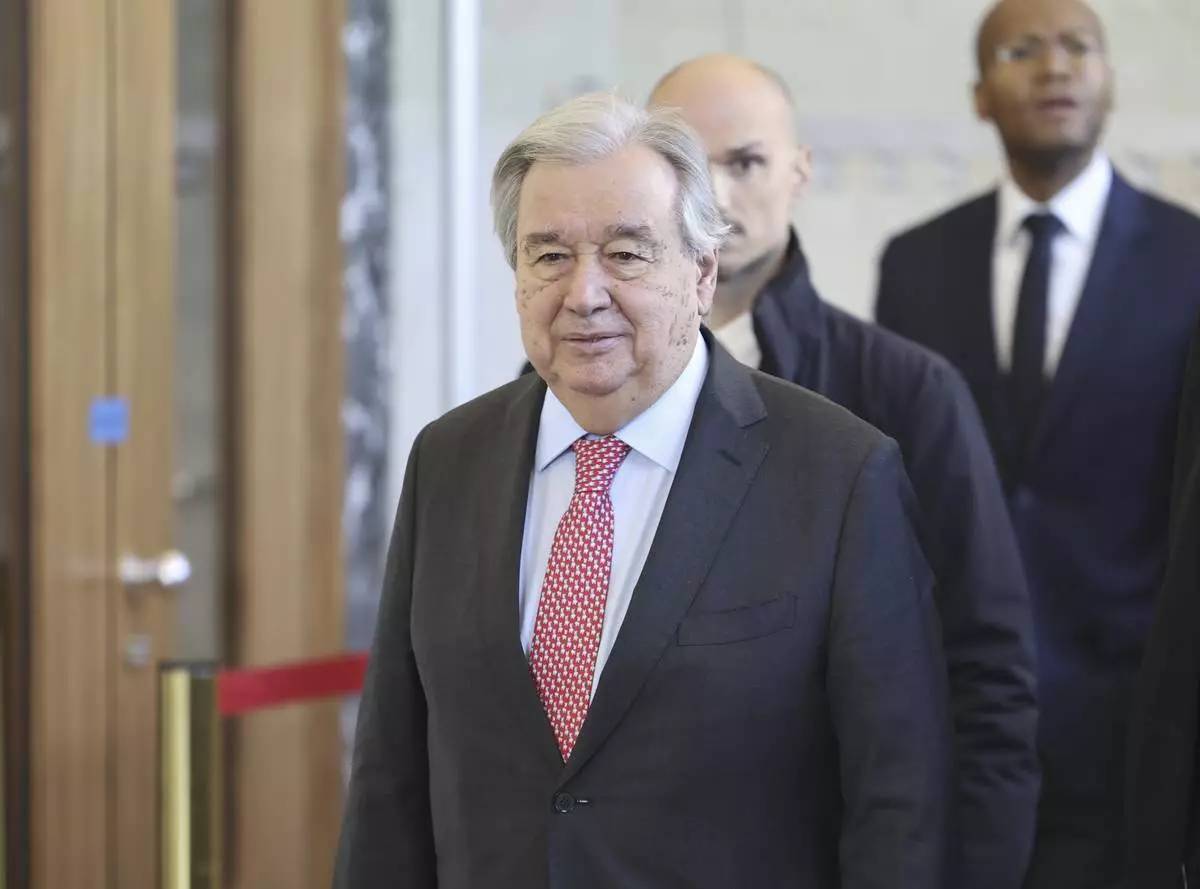
UN Secretary-General Antonio Guterres arrives to attend a meeting to discuss the future of stalled peace talks over the divided island of Cyprus at the United Nations in Geneva, Switzerland, Tuesday, March 18, 2025. (Pierre Albouy/Keystone via AP)


